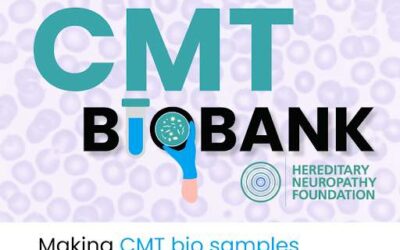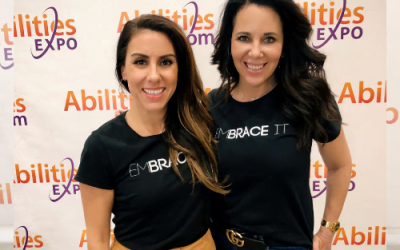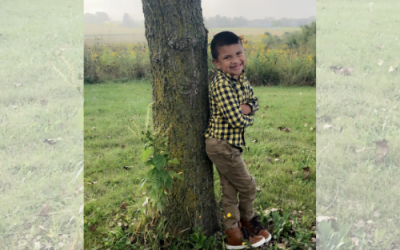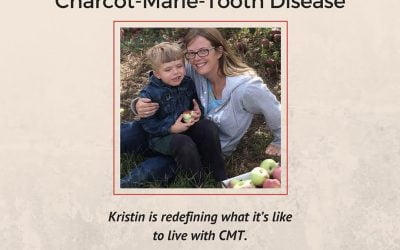About CMT4A / GDAP1
CMT4 is a rare subtype of CMT, a genetic, neurological disorder that causes damage to the peripheral nerves — tracts of nerve cell fibers that connect the brain and spinal cord to muscles and sensory organs.
CMT4 is a subtype of CMT that is inherited in an autosomal recessive pattern.
“As genetic therapies quickly become a real option for CMT patients, this new HNF project is very exciting for patients, physicians, and researchers alike”
– Dr. Stephen Züchner, MD, PhD Professor for Human Genetics and Neurology Chair, Dr. John T. Macdonald Foundation Department of Human Genetics Co-Director, John P. Hussman Institute for Human Genomics University of Miami Miller School of Medicine and founder of The Genesis Project
2024 CMT Roadshow Coming to a City Near You?
Do you want to make a difference in CMT research? HNF is looking for patients with a confirmed CMT diagnosis to participate in the CMT Biobank
“Grow or Mow” A Sheer Success!
Brandon, his wife, and Alana would host a virtual ‘Mow or Grow’ fundraiser with each $1 vote going towards CMT research.
Act of Kindness: From Strangers to Instant Friends
On October 14, 2020, Winter School athletes in Wisconsin hit the Tuscobia Trail to raise much needed funding for HNF’s gene therapy program in support of Alana Kohler.
The Miracle We’ve Been Praying For!
Alana Kohler’s story of having CMT4A.
Meet the Kohler Family: Alana has GDAP1
Alana Kohler’s story with CMT4A.
EmBRACE It Podcast with Lainie Ishbia and Estela Lugo
We want our CMT viewers and listeners to feel like they can relate to us, and that it’s perfectly okay to be imperfect!
Hope for the Future for Owen
A gene therapy is within our reach for GDAP1 (CMT4A), an autosomal recessive loss of function disorder and effecting many patients like Owen.
Breaking Down The Barriers Of Charcot-Marie-Tooth Disease
Kristin is redefining what it’s like to live with Charcot-Marie-Tooth disease. Determined to be seen for who she is, rather than her disability, Kristin faces the daily challenges of CMT head on with grace, dignity, and perseverance.
Kristin’s story not only shows us how she is redefining herself, but how she is giving others living with CMT the courage to do the same. Let’s learn more about Kristin and how she’s breaking down the barriers of CMT.
Do You Have Charcot-Marie-Tooth Type 4 (CMT4)? – We Need Your Help
Autosomal recessive demyelinating CMT4 patients present with earlyonset and slowly progressing symptoms. These include progressive distally accentuated weakness and atrophy of muscles in the lower limbs. In addition, patients may have weakness and atrophy of hands, sensory loss and pes cavus (high-arched feet), and walking difficulties. Further information on CMT4 can be found at Orphanet.








